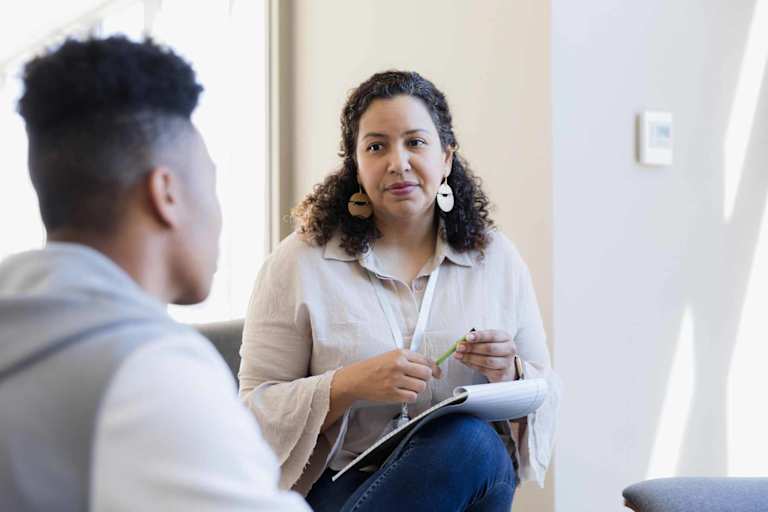The Best Online Bachelor’s in Addiction and Recovery Counseling for 2025
An addiction counseling bachelor’s degree can launch your career in a high-demand field. Learn more about the top online programs and what to expect.Why Psycholology.org?
The Psychology.org team includes writers, editors, and contributing psychology students and professionals dedicated to helping you navigate the field. We follow a strict editorial and review process to ensure our content is up-to-date, factual, and relevant. Learn more aboutour editorial process.
Addiction and recovery counselors are in high demand, and a bachelor’s degree can help you launch your career in this growing field. But what can you expect from an online addiction counseling bachelor’s degree? And what are the best online programs for this major? Our guide walks you through what you need to know.
Best Online Bachelor’s Degrees in Addiction and Recovery Counseling
Bay Path University
- Longmeadow, MA
- 4 year
- Online
78%
Yes
76%
N/A
$35,781
$35,781
70%
2,465
Private
University of South Dakota
- Vermillion, SD
- 4 year
- Campus + Online
58%
Yes
99%
N/A
$7,773
$11,283
80%
9,868
Public
Northwestern State University of Louisiana
- Natchitoches, LA
- 4 year
- Campus + Online
89%
Yes
94%
N/A
$5,180
$15,968
70%
8,847
Public
Alvernia University
- Reading, PA
- 4 year
- Campus + Online
35%
Yes
59%
N/A
$39,100
$39,100
68%
2,484
Private
University of Holy Cross
- New Orleans, LA
- 4 year
- Campus + Online
68%
Yes
87%
N/A
$14,040
$14,040
76%
1,120
Private
 Our Ranking Methodology
Our Ranking Methodology
Psychology.org ranks education programs using data from reputable sources like the U.S. Department of Education. Our vetting process also includes a quality assurance team that assesses datasets for accuracy.
Psychology.org reserves the right to exclude any schools that lack significant data from the rankings to ensure accurate calculations. This list is for 2025. For more about how Psychology.org evaluates and ranks education programs, visit our full ranking methodology.
What to Consider When Choosing an Online Bachelor’s in Addiction and Recovery Counseling
When choosing an online bachelor’s degree program, cost is often at the top of the list. Other important factors include accreditation, potential careers, and the program format. Researching these areas can help you find the best fit.
Accreditation
Online students should always choose an accredited college or university to earn their bachelor’s degrees. Accredited institutions follow the best practices in higher education. They also undergo rigorous reviews to earn and maintain their accreditation.
Choosing an accredited school can also impact your financial aid and job opportunities. Some graduate programs require an accredited bachelor’s degree for admissions.
When it comes to accreditation for psychology programs, undergraduates should look at the institution’s accreditation status. Psychology accrediting agencies only evaluate graduate-level programs.
Career Relevance
A bachelor’s in addiction and recovery counseling can prepare you for a career as a substance use or addiction counselor. If you’re interested in pursuing drug and alcohol counselor certification following graduation, make sure the program you choose offers courses, electives, and practical experiences that meet your state’s requirements.
If you plan to earn a master’s in addition and recovery counseling, you’ll also want to look for undergraduate programs with a strong graduate placement rate. You can contact programs to learn more about their graduate placement statistics.
Hybrid and Online Options
Do you want to earn your degree fully online or take some classes in person? Online bachelor’s programs in addiction and recovery counseling offer both fully remote and hybrid delivery formats.
Which format works best for you? It depends on your learning style and preferences. Some students prefer in-person discussions with faculty and classmates. Others want the flexibility of a fully online format.
However, if you want the flexibility of an online format with face-to-face components, you can also look for synchronous online programs with live class sessions held via videoconferencing.
Cost and Financial Aid
The cost of an online bachelor’s in addiction and recovery counseling varies widely. According to the National Center for Education Statistics, undergraduates across the U.S. paid, on average, between $9,750 and $35,248 in tuition and fees in 2022-2023. In general, in-state public institutions charge the lowest tuition rates, but you’ll need to consider the total cost of the degree, including fees and textbooks.
You can apply for financial aid, including federal student aid programs such as the Pell Grant and merit-based scholarships, to help pay for your degree.
Practical Experience Opportunities
Hands-on experience deepens your understanding of counseling and addiction recovery and is a common requirement for becoming a certified drug and alcohol counselor. Many online programs incorporate practical experience opportunities, including practicums and internships.
When researching programs, look at the experiential learning requirements to find a good fit. Do programs help arrange internships or expect students to organize these opportunities? Is experiential learning optional or required? And does the school offer opportunities in your preferred specialization? Considering these questions can help you narrow down your options.
Applying to an Online Bachelor’s in Addiction and Recovery Counseling
Ready to take the next step toward earning a bachelor’s in addiction and recovery counseling? You’ll need to meet the admission requirements.
Common requirements include:
A high school diploma or the equivalent
Official transcripts
Minimum 2.0 GPA
SAT or ACT scores
Letters of recommendation
You’ll also need official college transcripts if you’re a transfer student. Because the requirements depend on the program, you must review each program to ensure you qualify. For more, check out our undergraduate application and transfer guide.
Frequently Asked Questions About Bachelor’s Degrees in Addiction and Recovery Counseling
Yes, you can earn a degree in addiction and recovery counseling online. Accredited online programs meet the same high academic standards as in-person programs, making them a great option for busy students seeking a degree in this major.





